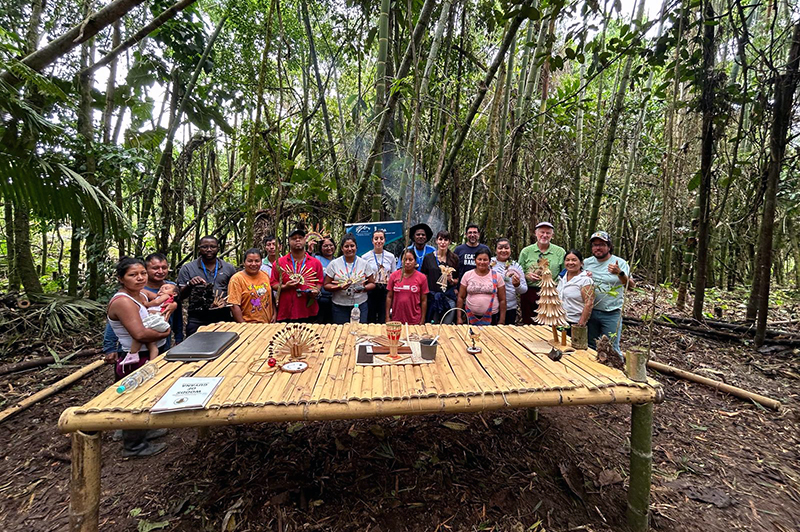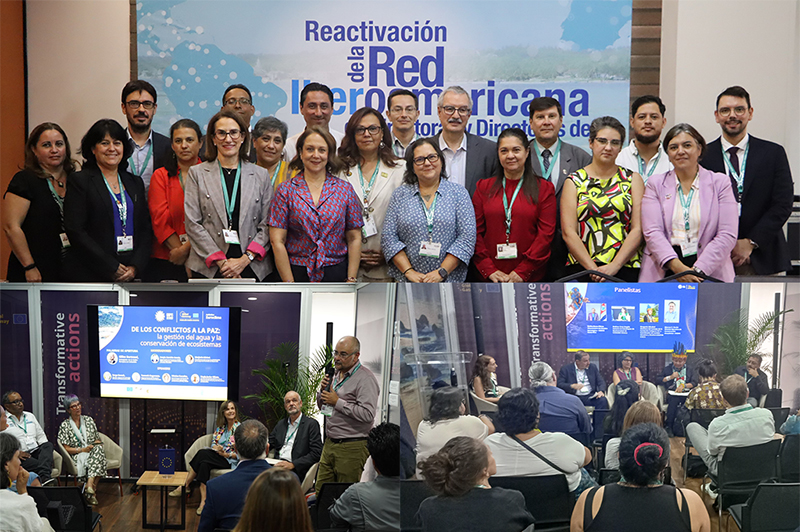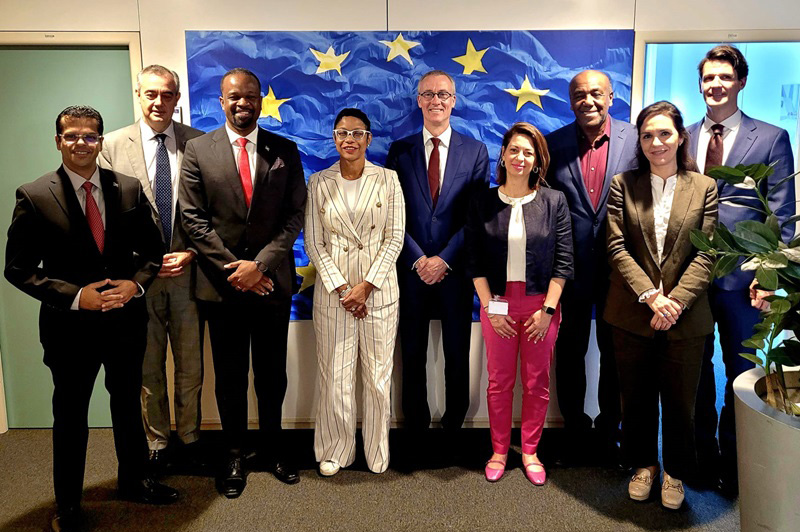Montevideo, Uruguay, August 22, 2018.
Montevideo, Uruguay, August 22, 2018. UN Climate Change (UNFCCC) and the EUROCLIMA+ programme of the European Union have just signed an agreement to raise public awareness about climate change in Spanish, the second most spoken language in the world after English.
The agreement was announced during Climate Week for Latin America and the Caribbean that is being held in Montevideo (Uruguay) until August 23, in an event with the participation of UN Climate Change Executive Secretary Patricia Espinosa; the Ambassador of the European Union in Uruguay, Karl-Otto König; and Ignacio Lorenzo, Director of Climate Change for the Ministry of Housing, Territorial Planning and Environment of Uruguay, the host country of the meeting.
Under the agreement, the European Union through the EUROCLIMA+ programme will donate 195,000 euros (US $222,815) to the UN Climate Change secretariat for the dissemination of information in Spanish about the international process to confront climate change under the UNFCCC, the progress made on climate action worldwide, and the implementation of the Paris Agreement.
This contribution will allow UN Climate Change to reinforce its public information work in Spanish through the website https://unfccc.int/es/, its social networks and through different outreach activities, including facilitation of the work of the Spanish language media. The agreement will last a year and a half, from July of this year to the end of 2019.
During the event organized by EUROCLIMA+, the UN Climate Change Executive Secretary thanked the European Union for its contribution. Ms. Espinosa highlighted the need to raise awareness about climate change in order to achieve the objectives of the Paris Agreement to limit the increase in global temperature to 1.5 degrees Celsius.
“Informing about the causes and effects of climate change and explaining the existence of viable solutions is fundamental in beginning to tackle the problem and it is very important that this information is accessible, easy to understand, and available in the native language of all agents of change, from the ordinary citizen, to the minister, or executive,” said Ms. Espinosa.
“This agreement and the contribution from the European Union are very important to us in the United Nations because they will help us to better inform more of the Spanish-speaking public about climate change,” she added.
For his part, Ambassador of the European Union Karl-Otto König, stressed that the implementation of the Paris Agreement will create opportunities in Latin America to promote sustainable development through climate action and will involve new challenges that can be addressed jointly. “This logic is the reason why we are trying to apply a regional approach in our programme, and it is also the reason why we decided to accept the UNFCCC’s request to support the Spanish version of its website,” Ambassador König said.
“We know that this year is crucial, and we wish UN Climate Change the best to ensure that the COP24 is a success. We are sure that this website in Spanish will be a key tool for achieving this success,” he said.
NOTES FOR EDITORS
Contacts for the press:
- UN Climate Change: In Montevideo (Uruguay) Matthew Phillips This email address is being protected from spambots. You need JavaScript enabled to view it.; in Bonn (Germany) Mariana Castaño Cano This email address is being protected from spambots. You need JavaScript enabled to view it.
- European Union Delegation Uruguay Richard Empson: This email address is being protected from spambots. You need JavaScript enabled to view it.Office: +598 2 19440119
- MVOTMA, Lucía Cuozzi, This email address is being protected from spambots. You need JavaScript enabled to view it. Office +598 2 917 07 10 extension 2405
- EUROCLIMA+ Programme, Alexandra Cortés, This email address is being protected from spambots. You need JavaScript enabled to view it. // WhatsApp: +506 8879 6280
About the UNFCCC
With 197 Parties, the United Nations Framework Convention on Climate Change (UNFCCC) has numerous members that make it almost universal and it is the precursor treaty of the 2015 Paris Agreement on climate change. The main objective of the Paris Agreement is to limit the increase in average global temperature to less than 2 degrees Celsius, driving efforts so that it does not increase more than 1.5 degrees Celsius above pre-industrial levels. The UNFCCC is also the precursor treaty of the 1997 Kyoto Protocol. The ultimate goal of all agreements under the UNFCCC is to stabilize atmospheric greenhouse gas concentrations at a level that will prevent dangerous human interference in the climate system within a time period that will allow ecosystems to adapt naturally and make sustainable development possible.
About the EUROCLIMA+ Programme
This is the flagship program of the European Union to promote environmentally sustainable and climate-resilient development in 18 Latin American countries, particularly for the benefit of the most vulnerable populations. EUROCLIMA+ is a programme that is strengthened with the participation of the following implementing agencies: Spanish Agency for International Development Cooperation (AECID), French Development Agency (AFD), Economic Commission for Latin America (ECLAC), French Agency for International Technical Cooperation (Expertise France), International and Ibero-American Foundation for Administration and Public Policies (FIIAPP), German Society for International Cooperation (GIZ) and UN Environment. Since 2016, the European Union has allocated 88 million euros for EUROCLIMA+, and more resources are planned for 2019. www.euroclimaplus.org




